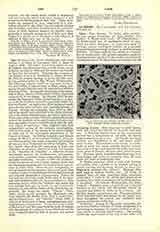

Lac , STANISLAS DU, Jesuit educationist and social worker, b. at Paris, November 21, 1835; d. there, August 30, 1909. His father, Louis Paul Albert du Lac de Fugeres, was descended from a noble family, noted in history as early as 1206, and his mother was Camille de Rouvroy de Lamairie. Entering the novitiate of the Society of Jesus at Issenheim, in Alsace, October 28, 1853, he studied theology at Laval till 1869, when he was ordained priest by Msgr. Wicart, September 19. The following summer (1870) he was made rector of the new College of Sainte-Croix, at Mans, where, during the Franco-Prussian war, he organized an efficient hospital service. During the ten months of his rector-ship at Mans, twenty-two thousand soldiers sojourned successively in his college. In October, 1871, he succeeded the martyred Father Leon Ducoudray as Rector of the Ecole Sainte-Genevieve, generally called as La Rue des Postes”, an institution which prepared candidates for the great military and scientific schools of France. During his rectorship, from 1872 to 1881, 213 of his pupils were admitted to the Ecole Centrale, 328 to the Ecole Polytechnique, and 830 to Saint-Cyr. With a rare combination of firmness and gentleness he trained his students to be such fearless Catholics that they gradually infused a Catholic spirit into the military school of Saint-Cyr. This, together with their unparalleled success at the entrance examinations, was the real cause of the closing of the Jesuit colleges in 1880 and of the subsequent persecution of the Church in France. In 1880 he founded a new French college, St. Mary’s, at Canterbury, England, where he remained as rector nine years, venerated and loved by all who met him, Protestants as well as Catholics. The last twenty years of his life were spent in Paris and Versailles, as preacher, director of souls, and founder of the “Syndicat de l’Aiguille”, a collection of loan and benefit societies for needlewomen, dressmakers, seamstresses, especially those young sewing girls who are called midinettes. As early as 1901 this syndicate, which has spread all over France, counted more than two thousand members and two hundred lady patronesses in Paris alone, where its two restaurants, reserved exclusively for members, had served more than a million meals, and where its preventive zeal had saved and consoled thousands of young women. Father du Lac had been for many years, in the eyes of the ignorant anti-Catholic multitude, the personification of the scheming Jesuit, while the Catholics who knew him best thought him only too frank, too apt to waste his kindness on men whose hatred of the Church was implacable. He wrote two books: “France” (Paris, 1888), which vividly portrays the affectionate relations between the Rector of St. Mary’s, Canterbury, and his French boys; and “Jesuites” (Paris, 1901), a defense of the Society of Jesus, containing many auto-biographical reminiscences. In the last long months of illness God took him away from the strife of tongues into the solitude of a religious house which was not his own, a hospital where he died in poverty and perfect trust.
LEWIS DRUMMOND

